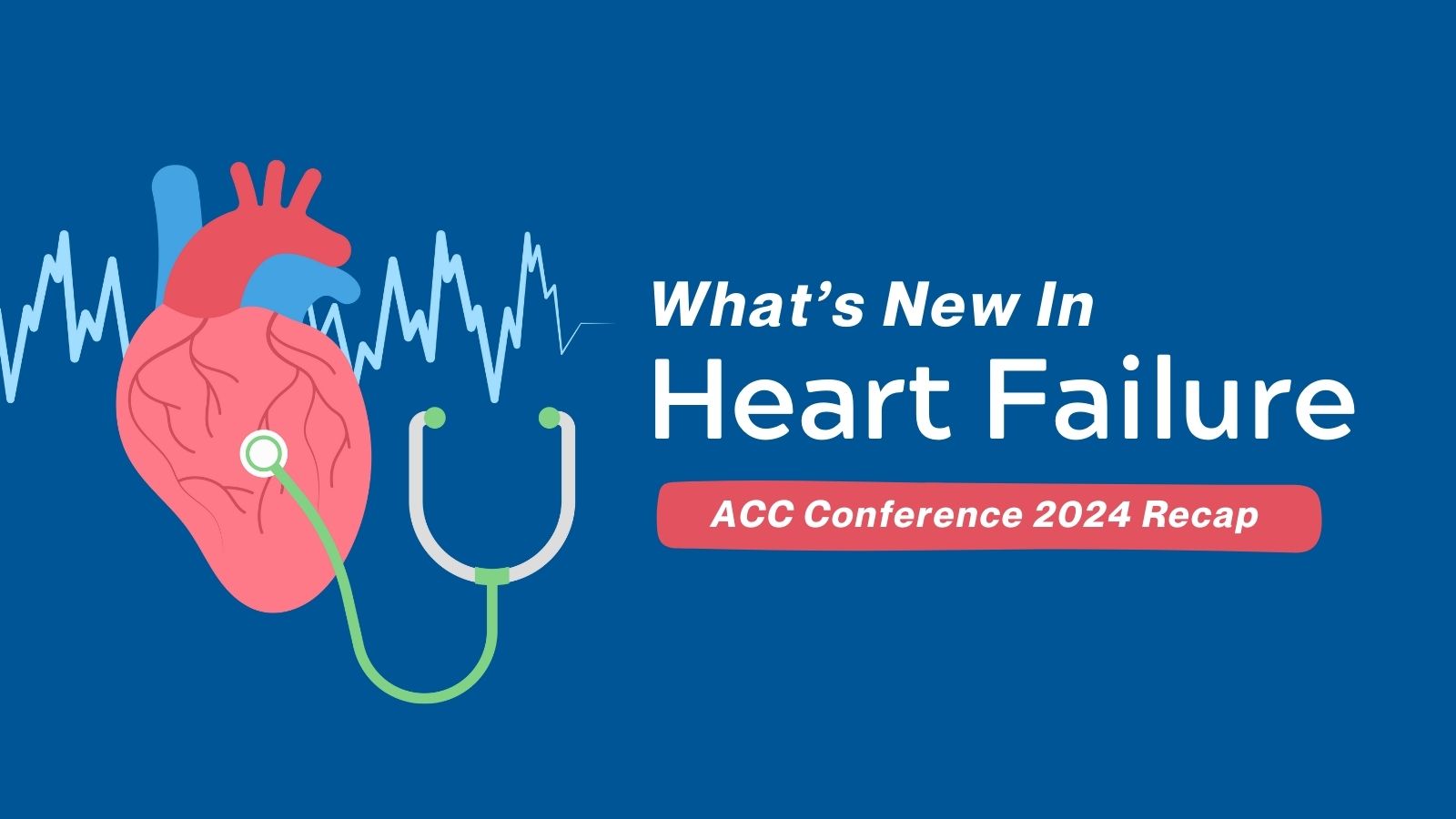
The 73rd Annual Scientific Session & Expo of the American College of Cardiology took place from April 6-8, 2024, in Atlanta, GA. This event is a cornerstone for healthcare professionals dedicated to improving patient care and outcomes in the field of cardiology.
One of the key topics discussed at ACC24 was heart failure. According to the CDC, approximately 6.2 million adults in the United States are affected by heart failure, with the condition being cited in just over 13% of death certificates in 2018.
Below are brief summaries of studies presented at ACC Scientific Sessions 2024 that are focused on evolving the best treatment options for the management of heart failure:
- STEP-HFpEF DM: Effect of Semaglutide 2.4 mg Once-weekly on Function and Symptoms in Subjects With Obesity-related Heart Failure With Preserved Ejection Fraction
- Links
- Key Takeaways
- Investigated the impact of semaglutide on individuals with obesity and heart failure with preserved ejection fraction (HFpEF)
- Semaglutide demonstrated greater reductions in heart failure-related symptoms and improved quality of life compared to a placebo after 52 weeks
- EMPACT-MI: A Streamlined, Multicentre, Randomised, Parallel Group, Double-blind Placebo-controlled Superiority Trial to Evaluate the Effect of EMPAgliflozin on Hospitalisation for Heart Failure and Mortality in Patients With aCuTe Myocardial Infarction
- Links
- Key Takeaways
- Among patients at high risk for heart failure post-myocardial infarction, empagliflozin did not significantly reduce the risk of a first hospitalization for heart failure compared to placebo
- RELIEVE-HF: A Double-Blind, Randomized Placebo-Procedure-Controlled Trial of an Interatrial Shunt in Patients With HFrEF and HFpEF
- Links
- Key Takeaways
- Patients with heart failure who received an interatrial shunt did not experience significant benefits compared to those who underwent a placebo procedure
- Results suggest that the benefits of an interatrial shunt may vary depending on heart failure type
- ARISE-HF: A Multicenter, Randomized, Placebo-Controlled Study to Evaluate the Safety and Efficacy of AT-001 in Patients With Diabetic Cardiomyopathy
- Links
- Key Takeaways
- Participants with Stage B heart failure treated with AT-001, a highly selective aldose reductase inhibitor, had no significant effect on exercise capacity among individuals with diabetic cardiomyopathy (DbCM)
The ongoing NIH All of Us Research Program revealed that individuals who used e-cigarettes were 19% more likely to develop heart failure compared to those who had never used e-cigarettes.
Clinical studies like these not only have the potential to educate the healthcare community on the best practices for treating and managing patients with heart failure but also influence future medical guidelines. Below are the latest guidelines on heart failure:
- Cardiac Physiologic Pacing for the Avoidance and Mitigation of Heart Failure
- Published May 20, 2023
- Critical Issues in the Evaluation and Management of Adult Patients Presenting to the Emergency Department With Acute Heart Failure Syndromes
- Published June 23, 2022
- Management of Heart Failure
- Published April 01, 2022
As we conclude ACC Conference 2024, we are excitedly anticipating next year’s conference and forthcoming guideline updates. We look forward to the publication of guideline updates on topics such as peripheral artery disease (PAD) and hypertrophic cardiomyopathy (HCM), among others, which we expect to be featured. We eagerly await ACC Meeting 25!
Copyright © 2024 Guideline Central, All rights reserved.